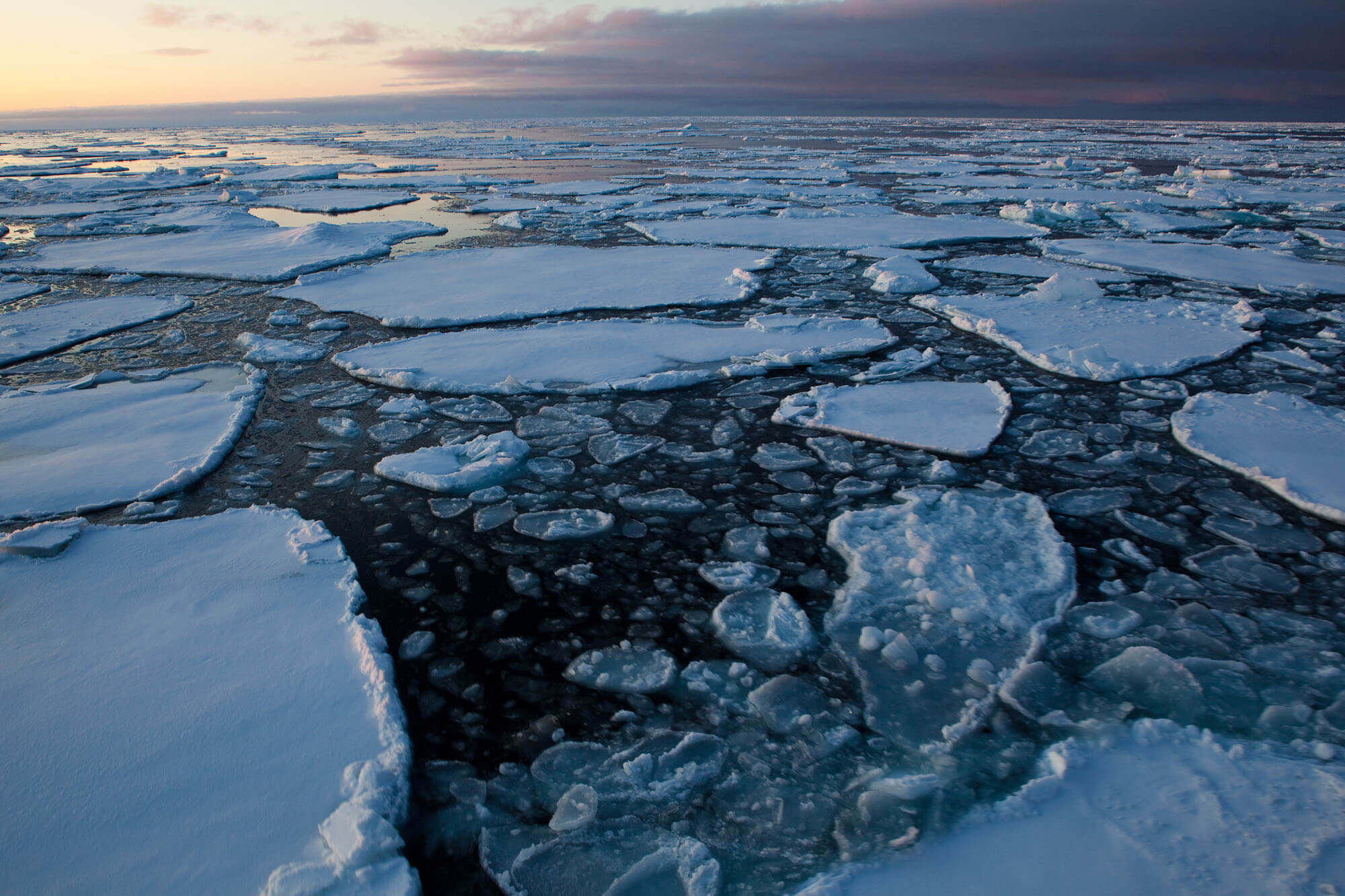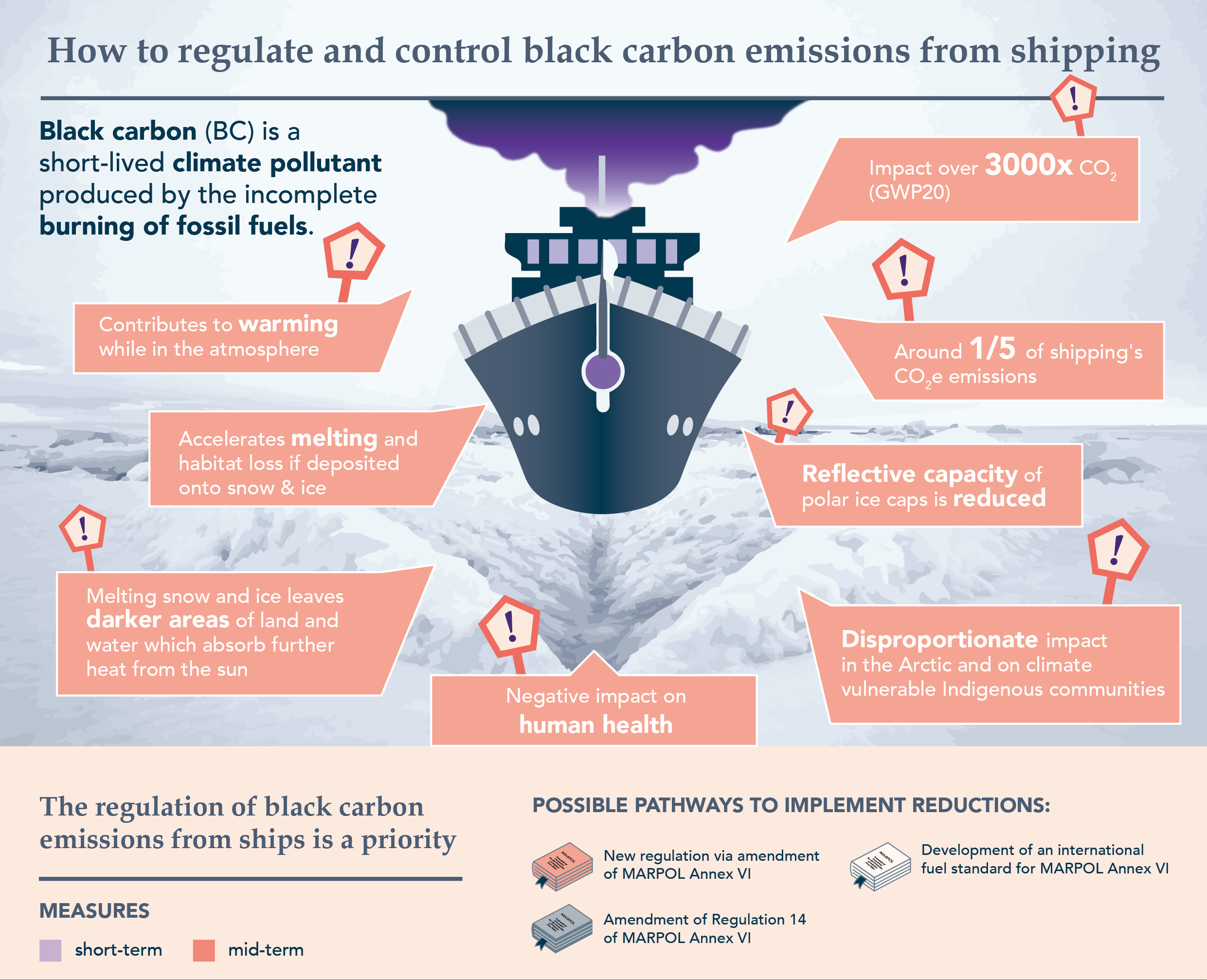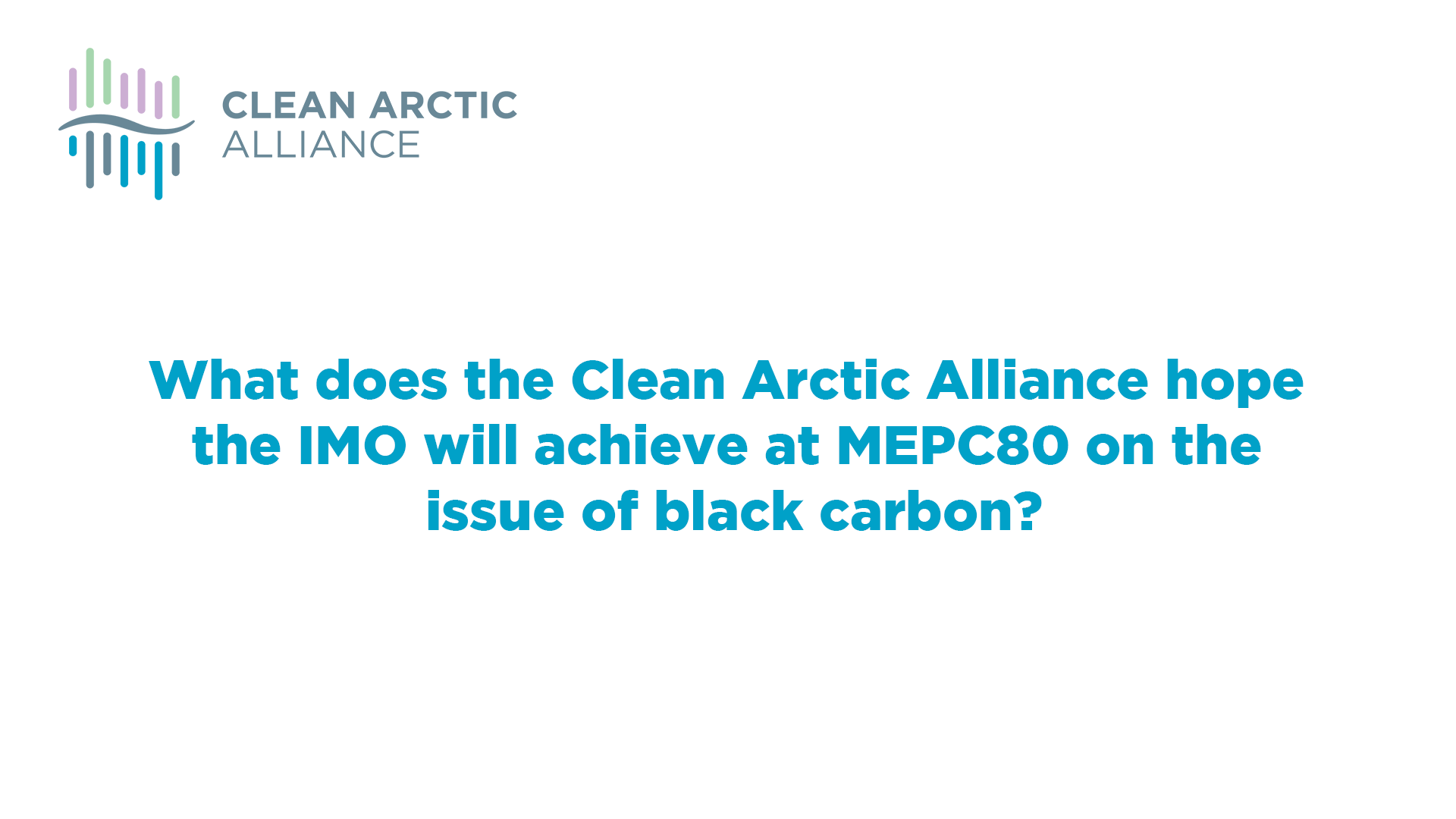International Maritime Organization Must Act on Climate Warming

London, 13 May, 2023:- Ahead of two crucial meetings of the International Maritime Organization (IWSG GHG 15, MEPC 80 [1]) the International Cryosphere Climate Initiative, the Inuit Circumpolar Council and Clean Arctic Alliance today call on the international shipping sector to halve its climate impact this decade by slashing CO2 and black carbon emissions, in response to a new study published in Nature Communications: Observationally-constrained projections of an ice-free Arctic even under a low emission scenario [2]. The research describes the likelihood of an ice-free Septembers – when the annual lowest sea ice extent is recorded – in the Arctic as early as the 2030s, even if humanity rapidly reduces its emissions. The paper’s authors warn that “humanity must prepare for increased extreme weather across the northern hemisphere that is likely as a result”.
“The most important thing this paper tells us is not the ‘when’ of sea ice loss, but the ‘why’ — it makes clear that the decline of Arctic sea ice is being pushed by global CO2 emissions”, said Pam Pearson, Executive Director of the International Cryosphere Climate Initiative, a member of the Clean Arctic Alliance. “If the global shipping sector was a country, it would be the world’s sixth biggest source of greenhouse gas emissions. The International Maritime Organization has the responsibility and the power to show other transport sectors how its done, by slashing climate warming emissions”.
“The ice-free-Arctic paper also drives home the message that the world’s ice is telling us: that more ice is being lost, faster than even the most recent models predict. It’s very telling that this study comes out only two months after the IPCC’s AR6 Synthesis Report, demonstrating that observations today outpace even high-end predictions.” [3]
“Global ice stores simply are more sensitive to slight changes in warming than we thought , which means that world leaders must keep temperatures much lower than the Paris Agreement thought was acceptable in 2015. 2°C really should be off the table, because at that point the Arctic is ice-free for several months each summer, not just a brief period in September. We know that now; so we need to correct this course very quickly”, said Pearson.
“Projections show that a very low emissions scenario would potentially provide a chance for sea ice recovery or stabilisation, crucial to avoid further harming sea ice, local cultures and ecosystems”, she continued. “This means slashing greenhouse gas emissions across every sector of human activity – something that must be a key focus of COP28” .
“The Arctic Ocean and its sea ice not only serves as a highway for Inuit but it is also essential for harvesting, culture and livelihoods. Our Inuit homeland, Inuit Nunaat, and our Inuit way of life is inextricably tied to the Arctic ecosystem and maintaining a cold and icy climate. With the loss of sea ice comes the devastating loss of the very core of our Inuit economy, daily life, and our survival as a people. The climate crisis and its many impacts and disruptions are happening right now with severe consequences for the people who live in the Arctic. For Inuit there is no time to waste. Ambitious, immediate, and significant action needs to happen now, waiting until 2030 or 2050 isn’t an option. Short term measures, such as reducing black carbon from the shipping sector, to bring GHG emissions down needs to be prioritised, without delay”, said Lisa Koperqualuk, President, Inuit Circumpolar Council, Canada.
“The international shipping sector must halve its climate impact this decade by slashing CO2 and black carbon emissions – we cannot wait till the 2030s and 2040s to take action to reduce CO2 emissions or to reduce the disproportionate impact of black carbon – which not only heats the atmosphere but also speeds up melting when it settles out of the atmosphere onto snow and ice”, said Dr Sian Prior, Lead Advisor of the Clean Arctic Alliance, a coalition of 20 nonprofit organisations working to protect the Arctic from the impacts of shipping.
“During IWSG and MEPC 80, the shipping sector has the chance to support ambitious targets on climate heating – but we need action across all sectors, including shipping, to kick-start emission reductions now. In July, IMO Member States must step up and take collective action, when they meet to finalise the revision of the Organization’s Greenhouse Gas Strategy, by agreeing to ambitious targets, especially interim targets, to reduce CO2 and on mandatory measures to reduce black carbon emissions immediately”, said Prior.
“The IMO should first prioritise agreeing to ambitious targets for the revised greenhouse gas strategy; zero climate emissions by 2050, and interim targets for 2030 and 2040. In particular we need shipping to halve its climate impact by 2030 and to reach zero by as close to 2040 as possible”, said Prior.
“Secondly the IMO must take action which would immediately reduce emissions. For example, slow steaming would immediately reduce CO2 emissions, while a switch to distillate fuels and installing filters would dramatically reduce black carbon emissions.”
ENDS
Contact:
Dave Walsh, Communications Advisor, [email protected], +34 691 826 764
Notes:
[1] ISWG GHG 15 26-30 June 2023
MEPC 80 –
Marine Environment Protection Committee, 3-7 July 2023
https://www.imo.org/en/MediaCentre/MeetingSummaries/Pages/MEPC-default.aspx
[2] Nature Communications: Observationally-constrained projections of an ice-free Arctic even under a low emission scenario
https://www.nature.com/articles/s41467-023-38511-8
Too late now to save Arctic summer ice, climate scientists find
[3] UNFCCC: R6 Synthesis Report, Climate Change 2023
https://www.ipcc.ch/report/ar6/syr/
About the Clean Arctic Alliance
Made up of 20 not-for-profit organisations, the Clean Arctic Alliance campaigns to persuade governments to take action to protect the Arctic, its wildlife and its people.
Members include: The Altai Project, Alaska Wilderness League, Bellona, Clean Air Task Force, Green Transition Denmark, Ecology and Development Foundation ECODES, Environmental Investigation Agency, Friends of the Earth US, Global Choices, Greenpeace, Iceland Nature Conservation Association, International Cryosphere Climate Initiative, Nature And Biodiversity Conservation Union, Ocean Conservancy, Pacific Environment, Seas At Risk, Surfrider Foundation Europe, Stand.Earth, Transport & Environment and WWF.
More more information visit https://www.cleanarctic.org/



